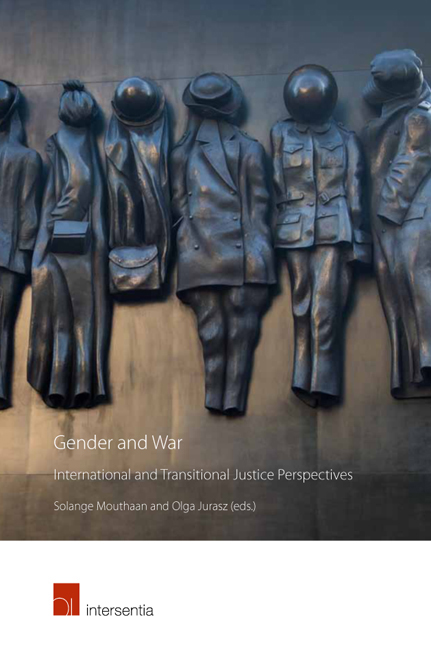Book contents
- Frontmatter
- Contents
- List of Cases
- List of Abbreviations
- List of Contributors
- Introduction
- PART I WOMEN'S INVOLVEMENT IN ARMED CONFLICT
- PART II MEN AND CHILDREN'S EXPERIENCES OF ARMED CONFLICT
- PART III GENDERED EXPERIENCES OF INTERNATIONAL CRIMINAL JUSTICE
- Gender, Enslavement and War Economies in Sierra Leone: A Case Study from the Special Court for Sierra Leone
- Male Victims and Female Perpetrators of Sexual Violence in Conflict
- Prosecuting Sexual and Gender-Based Crimes in the International Criminal Court: Inching Towards Gender Justice
- Reparations for Gendered Harms at the International Criminal Court: Towards Transformative and Gender-Just Reparations?
- PART IV GENDERED EXPERIENCES OF TRANSITIONAL JUSTICE
- PART V CONCLUSIONS
- About the Editors
Gender, Enslavement and War Economies in Sierra Leone: A Case Study from the Special Court for Sierra Leone
from PART III - GENDERED EXPERIENCES OF INTERNATIONAL CRIMINAL JUSTICE
Published online by Cambridge University Press: 30 March 2019
- Frontmatter
- Contents
- List of Cases
- List of Abbreviations
- List of Contributors
- Introduction
- PART I WOMEN'S INVOLVEMENT IN ARMED CONFLICT
- PART II MEN AND CHILDREN'S EXPERIENCES OF ARMED CONFLICT
- PART III GENDERED EXPERIENCES OF INTERNATIONAL CRIMINAL JUSTICE
- Gender, Enslavement and War Economies in Sierra Leone: A Case Study from the Special Court for Sierra Leone
- Male Victims and Female Perpetrators of Sexual Violence in Conflict
- Prosecuting Sexual and Gender-Based Crimes in the International Criminal Court: Inching Towards Gender Justice
- Reparations for Gendered Harms at the International Criminal Court: Towards Transformative and Gender-Just Reparations?
- PART IV GENDERED EXPERIENCES OF TRANSITIONAL JUSTICE
- PART V CONCLUSIONS
- About the Editors
Summary
INTRODUCTION
Enslavement of civilians played a central role in sustaining the war economy during Sierra Leone's 1991 – 2002 armed conflict. In particular, two warring parties – the Revolutionary United Front (RUF) and the Armed Forces Revolutionary Council (AFRC) – used various kinds of enslavement to further their war effort, including forced diamond mining, forced food procurement, forced carrying of loads, forced domestic labour and sexual slavery. Certain types of enslavement were highly gendered, as were the roles played by that enslavement in advancing the financial and organisational sustainability of the RUF and AFRC as fighting forces. For example, men were oft en targeted for forced portering of heavy loads and forced diamond mining. These forms of enslavement were crucial to the continuity of the two groups, which generated tradable commodities such as diamonds, food and looted valuables through forced labour. The RUF and AFRC also used forced labour of women and girls to create social units to undertake domestic duties, such as cooking and laundry, to keeping their forces fed and clothed. Finally, they also instituted sexual slavery as a form of extreme control over female (and, by extension, male) civilians and a reward for their forces.
The Special Court for Sierra Leone was created to prosecute those bearing the greatest responsibility for crimes committed during the 1996 – 2002 period of the decade-long civil war. Given the prevalence of enslavement during the war, it is not surprising that the Special Court examined various forms of forced labour in some depth. It did so in cases involving former RUF and AFRC leaders, as well as the former President of Liberia, Charles Taylor. But did the Court's analysis recognise the gendered nature of the enslavement and thus the gendered nature of the war economy? This chapter analyses this question through an examination of the Special Court's Trial Chamber judgments in the RUF, AFRC and Taylor cases. It also considers why the linkage between gender, enslavement and the war economy is an important consideration in international criminal law.
- Type
- Chapter
- Information
- Gender and WarInternational and Transitional Justice Perspectives, pp. 147 - 168Publisher: IntersentiaPrint publication year: 2019



